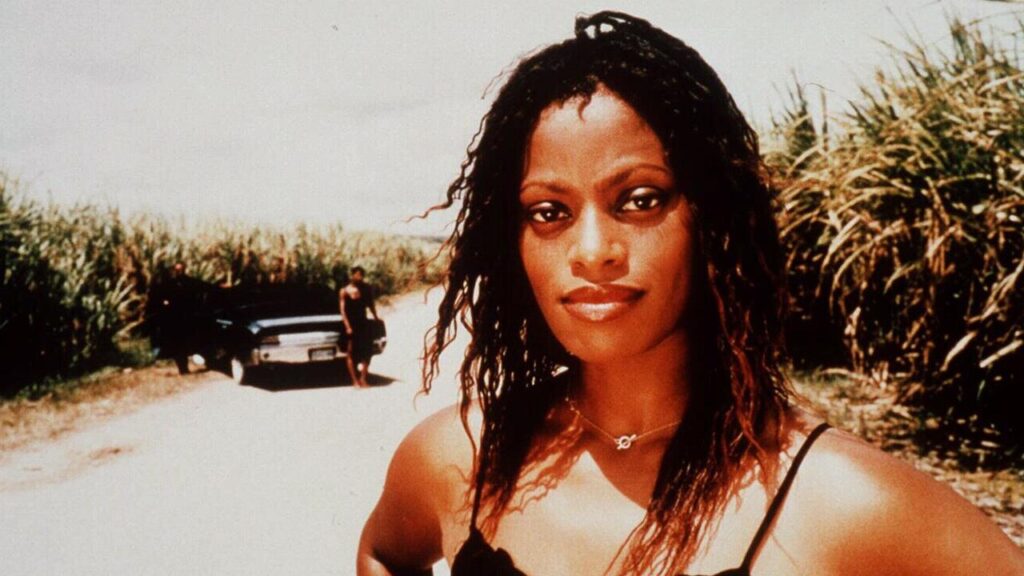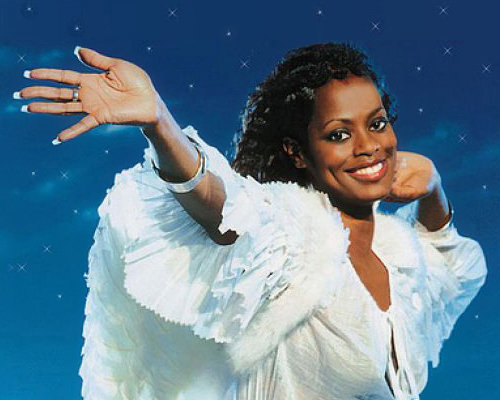What a surprise! I have a few thank-yous that I absolutely need to make. First of all, I’d like to thank my record company, Sony Music Worldwide, and my family. But seriously, what could make a record label like Sony drop a super talented, award-winning, non-problematic, and down-to-earth artist like Desiree? And why does Beyoncé’s name keep coming up whenever another artist leaves the music industry?
I know the name Desiree might not be instantly familiar to everyone, but you probably know some of her hits from the ’90s. Take “Feel So High,” for example. It didn’t initially reach the UK Top 40 but hit number 13 when it was re-released in January 1992. Desiree once said, “When I wrote ‘Feel So High,’ I never thought to myself, ‘Yes, that’s going to make me famous, it’s going to be huge.’ It was a song that came from feeling really negative.” You might also remember “Kissing You,” which became a worldwide hit thanks to its inclusion on Baz Luhrmann’s “Romeo and Juliet” soundtrack. Another memorable track, “You Gotta Be,” with its catchy line “Gotta be good, you gotta be…” was a true bop! It peaked at number five on the Billboard Hot 100 and was a hit in the UK three times. The song even became the most played music video on VH1 and stayed on the Billboard recurrent airplay chart for 80 weeks. And let’s not forget, Desiree won several awards, including Best British Female Solo Artist, for her fantastic work.
Londoner Desiree released her album “Supernatural” last year, co-producing and co-writing 10 of the 11 tracks. To me, Desiree was one of those artists who genuinely sang to inspire positivity, something she took pride in. She once shared, “As people come up to me and say, ‘That song was so inspiring, so encouraging, so positive, so empowering,’ you know, and that makes me feel good.” Unfortunately, despite her impressive career, Desiree faced a significant setback in 2003. Her fourth album, “Dream Soldier,” stalled at number 178 on the UK charts, leading her record label to drop her and triggering a 16-year hiatus.
So, what really happened? It’s said that her record label dropped her because “Dream Soldier” flopped, which was surprising given her previous hits. But that wasn’t the only reason. Desiree was also struggling with low energy due to an underactive thyroid. When Sony, her record company, discovered her health condition, they decided they no longer wanted to work with her. Additionally, other factors discouraged her, such as the harsh criticism of her song “Life.” The lyrics, especially the verse, “I’m afraid of the dark, especially when I’m in a park and there’s no one else around. Oh, I get the shivers. I don’t want to see a ghost. It’s a sight that I fear most. I’d rather have a piece of toast and watch the evening news,” ended up on several “worst lyrics ever” polls.

Desiree’s disappearance from the music scene can be attributed, in part, to urban radio stations’ reluctance to feature her songs. They contended that her sound didn’t align with the perceived “black” or “urban” standards required for inclusion alongside other black artists. To provide some context, Desiree was born in southeast London, England, in November 1968. Her mother hailed from British Guyana, while her father was from Barbados, exposing her to a rich blend of reggae, calypso, and jazz from a young age. At 22, lacking any industry connections, she was signed to Sony 550 after her boyfriend submitted a demo to the label. They promptly contacted and signed her. However, despite her talent, urban radio stations failed to promote her music, citing doubts about its appeal to a black audience.
Desiree candidly addressed her frustration, stating, “The definition of black music needs reevaluation. Artists like Jimi Hendrix and Tina Turner, whom urban radio neglected, and even Sade and Seal, dismissed as too pop. What message does this convey? Are black musicians confined to a single style, devoid of the diversity found in jazz? Does my personal experience as a black woman carry no weight?” In another interview, she recounted, “The record company insisted, ‘You’re not black enough for black radio, nor are you contemporary pop. Perhaps we’ll pursue the adult contemporary route.’ I inquired, ‘What’s AC?’ It refers to adult contemporary. I had to familiarize myself with these various categories and labels.”
Life’s rough out there, even if you’re not hustling as a pimp. Despite not being in that game, Desiree faced some serious struggles. Even though she commanded the stage like nobody’s business, she battled crippling anxiety that held her music back. “I had this inner turmoil about singing. The passion was there, but the fear just froze me. Even now, I get paralyzed with nerves before hitting the stage.”
And if that wasn’t enough, she had to deal with other artists trying to trip her up, including a messy showdown with Beyoncé. Here’s the deal: Beyoncé covered Desiree’s track “Kissing You” for her album “B’Day,” changed the name to “Still in Love (Kissing You),” and gave herself writing credits. Thing is, there was no official agreement for Beyoncé to use the song, but she went ahead, re-recorded it, and even made a video. So, Desiree decided to go after $150,000 in damages and demanded the song’s distribution be halted. Beyoncé’s been called out before for stepping on other artists’ toes or taking credit where it wasn’t due, so it’s not exactly a shocker that she pulled this move without Desiree’s okay.
You know how it goes, right? When someone steps on Beyoncé’s toes, it’s like playing with fire. Just ask Keri Hilson, who found herself sidelined after dissing Queen Bey. “I didn’t mean it like that. When you’re starting out, you feel like you have to play along. But when you push back, they hit back harder, with big threats. And you’re left feeling like you have no choice. I felt trapped.”

And let’s talk about Desiree—she’s no stranger to having her work borrowed without credit. Back in ’98, she struck a deal with Janet Jackson over “Got ‘Til It’s Gone,” which sounded a lot like Desiree’s “Feel So High.” But for Desiree, it wasn’t just about the money. “I wasn’t after a payday; it was about getting recognition for my work. Asking permission first would’ve been fine.” And this sampling issue? It’s a whole can of worms.
So, when the very folks who should be supporting her are the ones taking from her, it’s no wonder Desiree feels let down. With her high-profile legal battles involving Beyoncé and Janet Jackson, it’s likely she faced some serious career setbacks.
In 2014, Desiree tentatively dipped her toes back into the music world, sensing a glimmer of hope. She returned to the studio with her trusted collaborators, creating music purely for the love of it, without lofty expectations. As the songs gradually coalesced into an album, life threw her a curveball once again. Her mother fell gravely ill, requiring Desiree and her sister to become her primary caregivers. Family took precedence, prompting Desiree to step away from her musical pursuits. Yet, amidst the sorrow, she found solace in sharing her new compositions with her mother, who became her pillar of strength and encouragement.
Reflecting on her journey, Desiree remembered her mother’s urging to pursue law instead of music, which sometimes made her wonder if she should have heeded that advice. During her hiatus, she explored diverse interests—from ceramics and painting to jewelry design—before delving into alternative medicine, earning certifications as a nutritionist and naturopath. However, her passion for music remained a constant presence.
In 2019, Desiree quietly resurfaced, releasing a new single titled “Don’t Be Afraid.” Despite her hopes, the song didn’t quite resonate with audiences as she had envisioned.

Should Desiree contemplate reentering the music scene independently, free from the constraints of a label? Is it worth reigniting her musical journey? And what about the challenges that led her to step back—facing health struggles, caring for her ailing mother, grappling with discrimination and anxiety, and the disappointment of being dropped by her record label? It’s evident she’s traversed a rocky road. Share your thoughts in the comments below.










